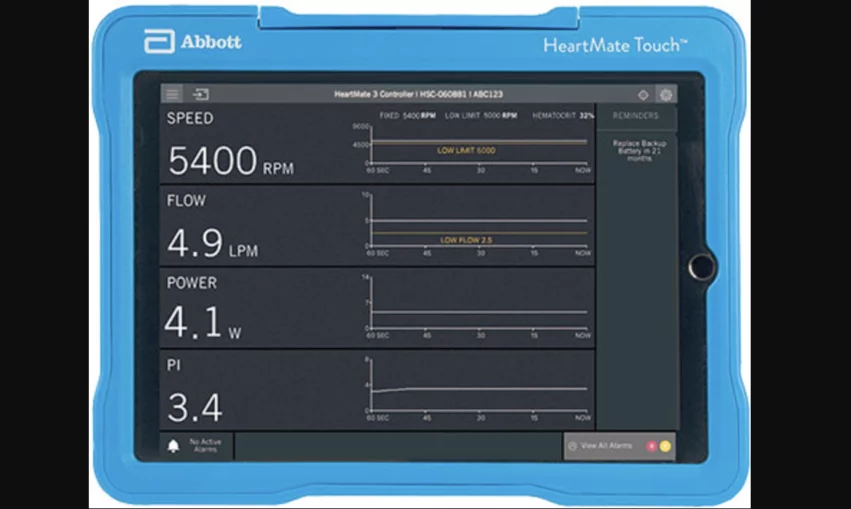The U.S. Food and Drug Administration (FDA) has announced that Abbott is recalling its HeartMate Touch Communication System for tracking patients with a HeartMate 3 left ventricular assist device (LVAD).
This is a Class I recall, which means using the device “may cause serious injuries or death.” However, the FDA emphasized that this is a correction and not a product removal; customers do not need to return the devices to the manufacturer.
Why Abbott recalled its HeartMate Touch Communication System
The HeartMate 3 LVAD is a heart pump approved by the FDA for the long- and short-term treatment of heart failure. It has been implanted in thousands of patients in recent years and is the only FDA-approved LVAD currently available on the U.S. market. The HeartMate Touch Communication System is a tablet-like device designed to provide real-time patient data to healthcare providers after a HeartMate 3 LVAD has been successfully implanted. It can also be used during the implant as needed if additional patient monitoring is seen as potentially beneficial.
Abbott is recalling these data-tracking devices because they have been associated with causing the pump to start and stop unexpectedly.
“Issues may occur if the HeartMate Touch System is disconnected from a patient’s HeartMate Controller while a ‘pump stop’ command is running,” according to the FDA’s advisory. “When the HeartMate Touch is reconnected to the same or a new controller, depending on the status of the pump at connection, the pump will either stop or start. If the pump was stopped at reconnection, the pump will restart. If the pump is running at reconnection, a pump stop will occur. There are no alarms or indications that warn the user that the ‘pump stop’ command is still in the command queue.”
These issues can increase a patient’s risk of certain complications, including feelings of lightheadedness, sudden changes in blood flow, the loss of consciousness and death.
The Class I recall includes 1,560 HeartMate Touch Communication Systems. All devices were distributed to customers from May 2020 to December 2023. There have been eight patients injuries so far due to this issue, but no deaths.
Abbott’s recommendations for providers using the HeartMate 3 LVAD
Abbott has sent an Urgent Medical Device Correction to all customers impacted by this issue. The document urged providers to follow these three recommendations:
- Follow the Instructions for Use Chapter 4 HeartMate Touch Communication System, Pages 4-58 to 4-59, when performing the “STOP PUMP” sequence.
- Do not disconnect the HeartMate System Controller white cables or the wireless adapter from the power module until the “STOP PUMP” sequence screen with the red progress bar is no longer visible and the “STOP PUMP” screen changes automatically.
- Do not disconnect the pump during pump priming until the timer reaches zero, the pump stops and the “priming is complete” message appears.
Those with additional questions can reach Abbott at 800-456-1477.


